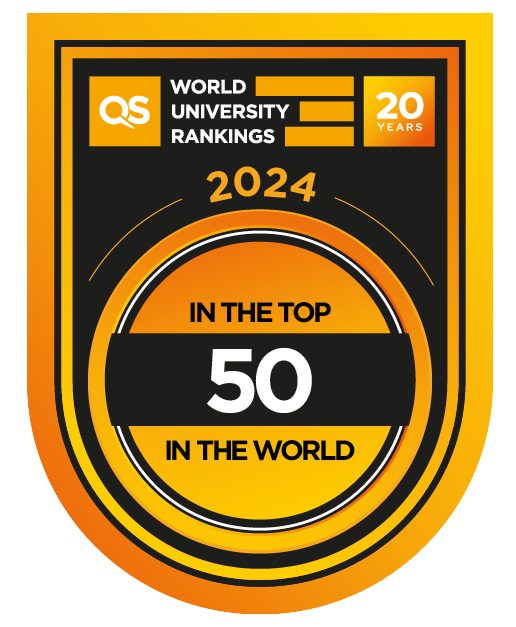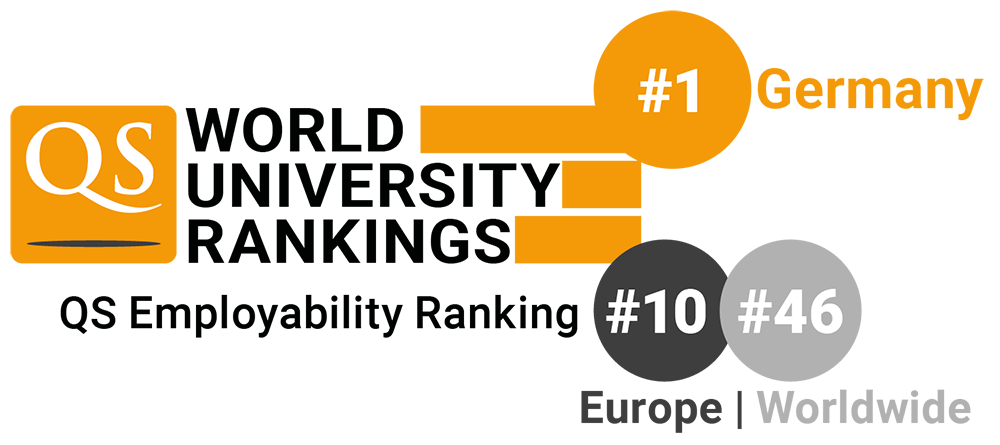KIT Rankings
| Times Higher Education World University Ranking 2024 | |
 Source: THE World University Rankings 2024 by subject: Engineering |
Times Higher Education (THE) rankings are based on citations, industry outcome, international outlook, research, & teaching, with the exact weighting and methodology recalibrated to suit the individual fields. To find out more, please visit the Times Higher Education website. |
| QS World University Ranking 2024 - by Subject: Mechanical Engineering | |
|
Source: QS World University Rankings by Subject: Engineering 2024 |
The QS World University Ranking is based on the characteristics of universities. The main categories are the size, age, status (public, private, etc.), research and its intensity, and focus (categorization of faculty areas and programs) of the universities. These five main topics are then broken down into smaller subtopics in order to rank each university.
To find out further information about the 2024 ranking, please visit the KIT website. Source: QS World University Rankings, 2024 |
| European Engineering Studies Ranking EngiRank 2023 | |
|
|
The European Engineering Studies Ranking or EngiRank was launched in November 2023 to provide students and industy a comprehensive, focused ranking of engineering schools within the EU. To find out more about these rankings and their methodology visit the EngiRank website. |
| QS World University Ranking 2022 - Employability | |
|
|
The QS World University Ranking is based on the characteristics of universities. The main categories are the size, age, status (public, private, etc.), research and its intensity, and focus (categorization of faculty areas and programs) of the universities. These five main topics are then broken down into smaller subtopics in order to rank each university.
To find out further information about the 2022 ranking, please visit the KIT website. Source: QS World University Rankings, 2022 |
| educations.com Ranking 2023 | |
 |
The educations.com ranking comes from their survey of over 30,000 international students based on 7 factors.
To find out further information about the 2023 ranking, please visit the educations.com website.
Source: educations.com Rankings, 2023 |
| Shanghai Ranking's Global Ranking of Academic Subjects 2020 | |
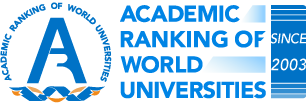 |
The Academic Ranking of World Universities (ARWU), also known as the "Shanghai" ranking, evaluates research indicators and individual disciplines. To find out further information about the ranking, please visit
|
| US News Best Global Universities | |
 |
the US News ranks universities on 13 different criteria to measure academic research preformance and their global/regional reputation.
|
| National Taiwan University (NTU) Ranking | |
 |
The NTU Ranking is based on publication data in the natural sciences and in the engineering sciences.
To find out further information about the ranking, please visit the KIT website.
Source: NTU Ranking, 2019 |
| WirtschaftsWoche Ranking | |
The WirtschaftsWoche Ranking ranks German universities.
To find out further information about the ranking, pleace visit the KIT website.
Source: WirtschaftsWoche Ranking 2022 |
|
| EU-Multirank | |
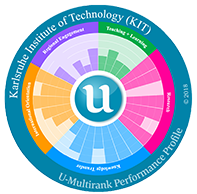 |
(Leading = better than average)
EU-Multirank, funded by the EU Commission, judges universities by their publications, third-party funding, number of post-docs, and more. They also break down subjects to give a more intensive look into the programs. This includes Electrical Engineering, Mechanical Engineering, Production/Industrial Engineering, Biology, Chemistry, among others. U-Multirank covers universities worldwide by using a variety of criteria and subjects.
To find out further information about the ranking, please visit the KIT website.
Source: EU-Multirank, 2018 |
| CHE University Ranking | |
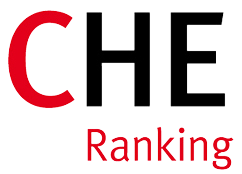 |
CHE University Ranking analyzes German universities about their studies, academic education, research, and student judgements in regards to the study conditions at their universities.
To find out further information about the ranking, pleace visit the KIT website.
Source: CHE Ranking 2017 |
| Nature Index | |
The Nature Index tracks universities worldwide and their research outputs every year, tracked from February until the next year in January (February 2016 - 31 January 2017). They also look into the output in each field and group them by subject, which are organized by journal and then title.
To find out further information about the ranking, please visit the Nature Index wesbite. Source: Nature Index, 2016-17 |
Get to know Carl Benz School

Are you curious what our students say about their studies? We have asked them how they would describe their life at Carl Benz School of Engineering in one word. Check out their answers!
See what our students say
CBS offers high school graduates the opportunity to study German engineering in English. The B.Sc. program aims to prepare future engineers for a successful career.
Learn more about our Bachelor Program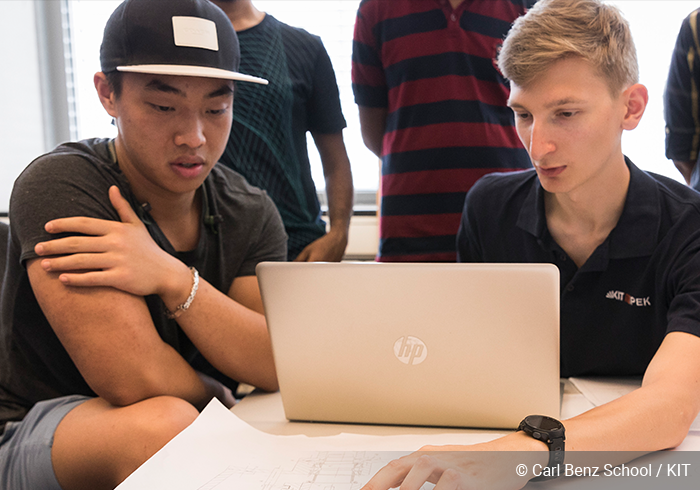
Carl Benz School offers more than just university education. It offers a safe and supportive environment to support the students throughout their studies. Learn more about our Costs and Fees.
Take a look at our costs and fees


